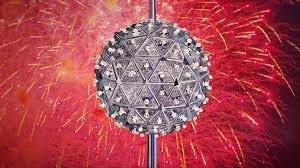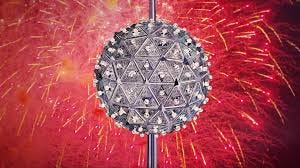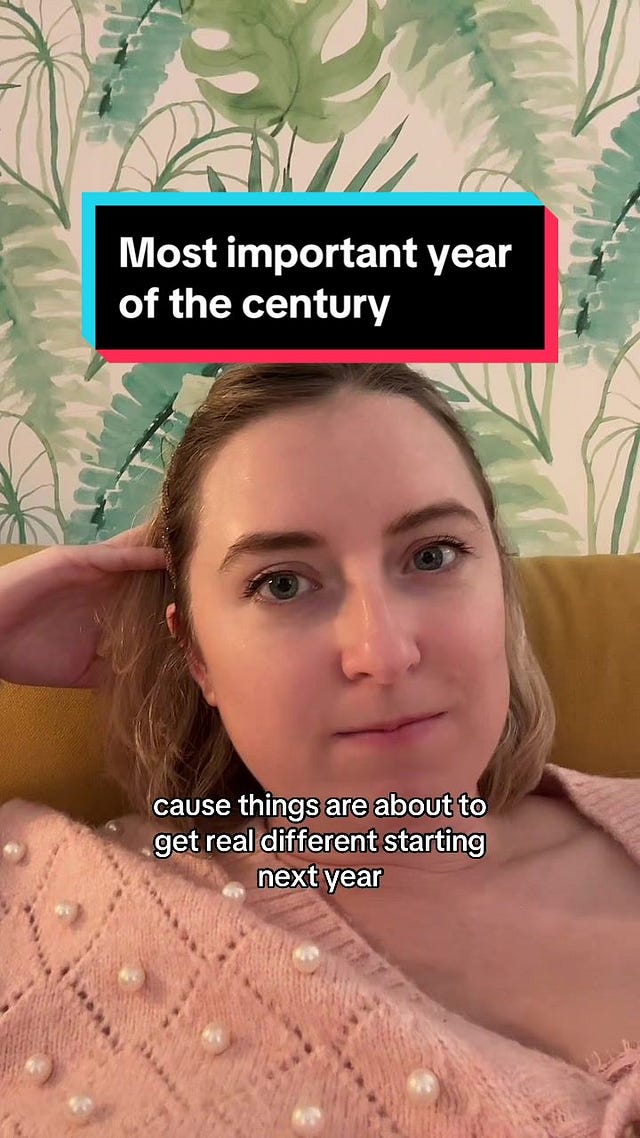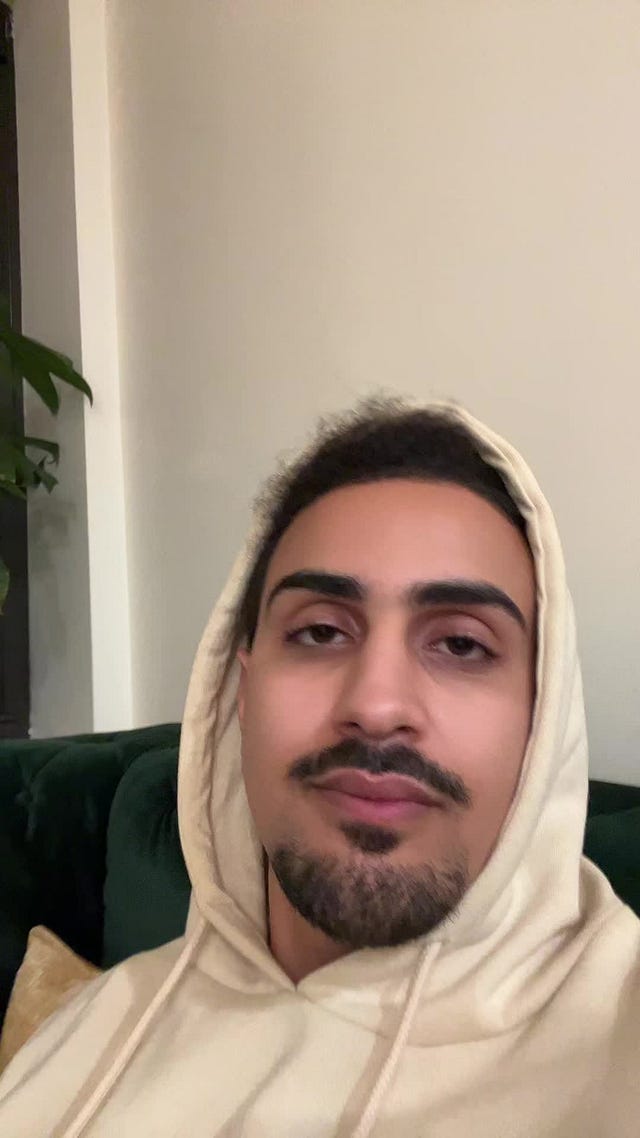Here we are, peering over the steep cliff of the year’s end, about to leap across into a new year. I’m not a soothsayer, but I have to say I do have a knack for making trend bets. At the risk of ripping off
and, more recently , here are some bets I have made writing this Substack:that a new left would form from the ashes of the old left
I immediately backed
‘s bet that AI would pretty much ruin the InternetI bet
and that Trump would beat Harris. (note: after hearing Peter Thiel say so, I bet that Trump would win before Wednesday morning)I was recently vindicated by
that the celebrity blockout would be substantial (credit to for devaluing celebrity in my eyes)the mainstream liberal media was in deep trouble
Well here I am with a brand new bet: 2025 will be the true beginning of the 2020s, especially when it comes to culture, art and entertainment.
I am aware our decade had a cataclysmic start. Too cataclysmic. Much of what we see around us has the pallor of COVID. But these past two months, between Trump’s decisive victory and MangioneMania, have accelerated whatever’s about to happen. Hard as it may be for some of you to swallow, this has all been prologue for the real weirdness that’s about to come.
Let me clarify: when it comes to politics and media, massive changes have already happened. This is half the reason I started this Substack: for my own purposes, just to chart the shifting cartography. This is not to say that next year will be anticlimactic. In January alone: Democrats will need to find new leadership — this is the decisive end of the Clinton/Obama era.; TikTok might be banned, which would make it the first channel of any sort to be banned in US history, after almost a century of open and free communication with the rest of the world; Trump will be inaugurated again.
That said, these changes are not enough for me to publish a Substack about why 2025 will be a truly big year. First, let’s get the woowoo out of the way: astrologists are suggesting everyone load up on sage because some shit is about to go down after the ball drops:
As always though, my method is to look backward before I look forward. Looking back, there were no hippies until 1965. Seriously. Even the Merry Pranksters…I mean, yeah, they dropped acid, but they didn’t meet up with The Grateful Dead (then called the Warlocks) until 1965. If you compare the music and culture between 1964 and 1965, night and day. 1964, Dylan was a folkie. 1965, he was a rocker. ‘64, The Beatles were teen idols. ‘65, they already started to get weird with Rubber Soul.
From Laurel Canyon: The Inside Story of Rock and Roll’s Legendary Neighborhood:
The change between 1964 and 1965 in Los Angeles was astonishing. In a photograph of a Johnny Rivers performance at the Whisky in 1964, the patrons look like extras from an episode of Dobie Gillis: short brilliantined hair and skinny neckties for the boys, Doris Day–style bouffants and sack dresses for the girls. One year later, post-Beatles, the Byrds are onstage—David Crosby has grown his hair and Yosemite Sam mustache and is wearing fringed buckskin; the audience appears to have been made over by some species of hip aliens.
In case you are skeptical, just listen to this playlist of songs I made from The Camelot Era (1960-1963). When you hear half of these songs, you will not think the ‘60s. Some of them had a music geek like me shocked that they were not from the ‘50s. Particularly the Everly Brothers songs.
One thing mentioned by myself and others many times: as crazy as things have gotten, the music, movies, etc. seem stuck in the 2010s. You can even say that Trump’s reelection marked the end of the Long 2010s. Culturally, we may already see this with a reduction of DEI in Hollywood. This is the conservative version of the cultural change though; the least radical break.
Thing is, with Gen Z, we are witnessing the largest generation gap since the ‘60s. Gen X and Millennial codes were far easier for Boomer suits to crack. Gen Z may be as inscrutable as the crypto a few of them are investing in. I wrote a whole piece on how difficult they are to reach as an entire generation. That said, why are Taylor Swift and Beyonce still the biggest sellers? I would guess that music labels have had an easier time reading aging Millennials than the youth. We’ll see.
Yes, Chappell Roan has been the first Gen Z pop phenom. But it feels like she is more the colorful end of the Long 2010s, with its poptimism, than she is the sign of something new. That said, if any established star seems ready to roll with the changes, it’s her. I would bet on her having a Sgt. Pepper’s before Sabrina Carpenter.
But what Luigi Mangione helped the youth realize, more than even Gaza did, is how alienated and disaffected the youth are by the media. This typically means great music, art, movies, literature are on the way. The fat and happy are too lazy to create anything muscular and dynamic. These kids are hungry for something different. I don’t see how anything in the cultural marketplace matches the revolutionary spirit out there. Not this year anyway.
The Boomer Liberal Elite were out of touch enough to not notice Joe Rogan’s influence, let alone Theo Von and other podcasters/streamers. Perhaps this will loosen their stranglehold on a struggling Hollywood, making room for Gen Xers and Millennials to take over. It should be noted that, countercultural as it was, the only true Boomer directors of New Hollywood were Steven Spielberg and George Lucas. All the rebels were a little older. That’s just how the town works. Side note: Von is a Millennial and Rogan an Xer.
Alex Garland, director of forward-looking film Civil War, has a new movie coming out in 2025: Warfare.
Like Civil War, this is a film that seems to be moving the culture forward, not tightening its grip on a moment that has long past.
One thing I can say about 2024 — like 1964, there were clear signs that things were about to change. Dylan wasn’t a rocker, but he already moved to more introspective, cryptic lyrics. The Beatles weren't “turned on,” but they infused rock — a fading, moribund genre at the time — with a youthful spirit. Timothy Leary published The Psychedelic Experience. Dr. Strangelove brought irreverence to Hollywood.
In this past year, meanwhile, Civil War was released. Challengers was another commercially successful film that wasn't made for infants. Mk.gee and MJ Lenderman were on late night TV. To paraphrase the old song, something’s happening here but we don’t know what it is, do we?
Then, like now, TV was stuck. The last thing to change with the times. Except for “The Penguin,” we got more of the same this year. “Abbot Elementary.” “Somebody, Somewhere.” Shows meant to flatter — not challenge — neoliberal TV critics.
That’s the vibe I’m getting anyway. I do believe, like
and others, that we are about to have a Romantic Renaissance. But first we need to muddle through the Age of Vibes. We are in too much of a cybernarcotic haze for feelings. Numb people feel vibes, not emotions. I do agree with the Guardian article I linked to that part of the reason we work with vibes is that it is a way to suss out all the false info out there.Since we are in the Age of Vibes instead of feelings, even something like the UHC CEO shooting seems to be devolving into ironic meme-ification. Luigi’s Mansion jokes, Brat Winter raves with his face onscreen, etc. From the late ‘70s, with New Wave music, until now, all counterculture has been stuck in ironic mode. Even the seemingly earnest hashtag activists had mugs that said “I Drink White Tears.” For every truly confessional mental health post, there were thousands that were lame mental health observational comedy, with a hint of Def Jam (videos with titles like “What it Be Like When U Have Social Anxiety at the DMV.,” etc.)
Yes, I am crazy enough to think that 2025 might see our first sincere counterculture since the ‘60s. Thing about 2025: I think it will be the first pure 2020s year of the decade. Looking back, you can see when decades shook off the shackles of the past and came into their own. For the ‘60s, it was 1965. The ‘70s, 1974 (Watergate, Barry White, Chinatown and Godfather II). The ‘80s, 1984. The ‘90s, 1992 (an early start, I might add). The 2000s, 2003 (Iraq War, hipsters start making their mark, social media is born with MySpace, The Daily Show comes into its own as one of the few programs openly questioning the war). The 2010s, 2014 (Buzzfeed News, Vice has its own TV show, Upworthy starts getting big, Taylor Swift goes pop and so does the world [away from rock], #blacklivesmatter gains momentum after Eric Garner and Michael Brown).
Now I can only peer so far into the future, but if TikTok does actually get banned, expect…unrest. Have you tried taking an iPad away from a child? I haven't. But I would not guess that the kids will just shrug. For those older than the TikTok generation (everyone reading and writing this) imagine if MTV was banned when you were young. Yeah, even if you didn’t really rock with MTV like that, you would have been upset by the principle.
 Tiktok failed to load.
Tiktok failed to load.Enable 3rd party cookies or use another browser
As I have mentioned before, this would not be the first extinction-level event in Internet history. The blogosphere disappeared and Elon Musk buying Twitter drove people away. But these were changes that were more subtle, less sudden. This is like an asteroid hitting the earth. The only thing that compares is Vine, an app that was also shut down suddenly. Difference being, Vine was withering and affected a slew of extremely online fans. It was not a money maker. TikTok is used by way more people, is tied to way more industries. Most of all, the political implications of the ban — an app that, years ago, was know for dancing and lip synching, but now is a platform that broadcasts controversial opinions — are not going to be met quietly, especially in light of the rage unlocked by the UHC CEO shooter.
What will be learned from this? Perhaps that the Internet is a junkyard where thoughts, expressions, pictures, music, are spare parts to be recycled by AI, beyond recognition. We’ll see how the kids cotton to that. If they are upset with genocide on the other side of the world, try taking out of their fucking bag.
I do think it’s sad that everything online is disposable. But perhaps this extinction event will move the kids off the apps and onto the streets. True emotion tends to happen off screen, IRL. Where you can’t scroll past discomfort. It already lead to an outpouring of emotions at Gaza protests. When you can’t do Luigi edits on TikTok anymore, left and right will be practically forced to meet on the street. Especially when it is all but assured that American online media will play nice with American politicians and censor unfavorable content even more.
If the ban goes through, there will be a power vacuum in the American Internet. Filtering the signal-to-noise ratio of online life is a great source of power. Blogs in the ‘00s filtered the buzz on Internet forums so major news organizations could see what was worth writing about. In the 2010s, digital news platforms like Buzzfeed, Vice and Upworthy did this. For this reason, blogs affected culture in the ‘00s while sites like Buzzfeed helped distill Twitter into a pure Batsignal of wokeness, boosting every hashtag there was.
In the ‘20s, the vibe shift helped break the connection between media institutions and the Internet – which, as
said, was a difference between power and popularity. Between Elon Musk buying Twitter in 2022, Buzzfeed and Vice collapsing in 2023 and Pitchfork folding earlier this year, there was a noticeable gap between popular apps like TikTok that threaten the media narrative with Gaza (and now Mangione) and a mainstream media that does not wish to push either message. What’s more, there has been no filter now. People either watch TikTok and YouTube or MSNBC and CNN. Needless to say, this widens the generation gap.With TikTok out, online media will be even more inscrutable. Instagram and X will not be strong enough to take TikTok’s place. The web will truly become a dark forest and a filter will be needed more than ever.
The press is trying to delay the inevitable by not using Substack as this filter. Believe me: I looked into Ghost and Beehiv. These strike me as Mastodon-style alternatives: good on paper, but just not as accessible. Substack also has more coverage.
and have had newsworthy moments that, for good or ill, have not come from the other newsletter platforms.For now, I see Substack filling the Internet power vacuum for America for the second half of the decade. Like I warned in the past, though, you can do anything online except hang your hat and call it home. But for now, Substack has the potential to not only amass power, but affect culture in general.
I have mentioned several times in the past that we need a revolution of consciousness more than we do a political revolution. I see that potential with the demise of the Church of the Other or, as
calls it, “the progressive panopticon.” I was wrong when I thought that Gaza would lead to the beginning of gray area and nuance. Turns out you were still shouted down online if you said anything other than Palestine must be restored and Israel must be dismantled. Mangione has his fans, but no one online is outraged at anyone who says, though the shooting may be wrong, something must be done about healthcare. Many, including myself, have pointed out that the people left and right seemed united through this, even as the mainstream partisan networks insist on blaming each other for the shooting.I wasn’t being flippant when I said that Mangione was the voice of a generation. Like I said, this is what happens when culture stagnates too long. Will 2025 bring a different voice? I do not believe we should rely on celebrities, and it is true that the hipster/indie rock era did just fine without a singular voice. But the idea of Mangione being Bob Dylan doesn’t sit right with me.
Speaking of Dylan, A Complete Unknown was just released. I don’t think it will be a good Dylan biopic. But it has exceeded box office expectations. Plus the kids seem to love Timothee Chalamet and he was compared to the shooter back in the early days, when all we saw was the smile on the hostel CCTV cam. Might be enough to get the youth on TikTok to ask who is their Bob Dylan? Who can express their angst, without a ghost gun?
If a new Dylan comes, I believe they will come from the fringes, not the mainstream. As Ted Gioia recently wrote:
The fringe will take over other spheres of the culture. It’s starting with journalism, but the same thing will soon happen in music, movies, and other fields.
I responded:
I agree with the cultural aspects (movies, TV, etc.) As far as journalistic institutions though, I respectfully disagree. The press is a tool of power for the state. Letting it fall to the rebels...not happening. A major outlet like the LA Times may teeter, it may be swallowed up by yet another conglomerate, etc. But as we have seen with the press tarring Mangione while whitewashing the damage of denied healthcare claims, the mainstream press is too invaluable not only to the government but to actual billionaires.
[…]
But yeah, musical acts like Chanel Beads and Mk.Gee are poised to take down the pop hierarchy and culture in this second half of the decade may blow everyone's minds with the freedom and creativity afforded by new cultural institutions.
Not only do I think the new Dylan will come from the fringe, if they come at all, I also think they will come from the mesoculture. Yet again, we seem stuck in a pointless polarity between online and offline. Why not have Substacks and podcasts bring new live talent like musicians, etc. to a wider online audience? Why do we insist live performance is pointless? How does Chappell Roan make money? Do we talk more about Dimes Square books or about the live readings?
And before we move forward, let’s look back once more. Much ink has been spilled regarding how the liberals lost the culture. What’s the takeway? You can change the culture patiently, through good art, not hastily, through shitty pop. Filmmakers could have told personal, affecting stories about their lives. Honest, revealing stories. Instead they hitched their wagon to Hollywood blockbusters that demand quick profits. One thing the New Hollywood New Left got right: culture takes time to change. Getting people to accept new ideas takes time, and it must be done well. Making Captain America black is not progressive; it’s cynical. Now is not the time for reintroducing characters, but for new characters altogether.
Let the lore begin.
Have a happy an exciting new year,








Some more evidence on the music side: Cameron Winter.
https://www.youtube.com/watch?v=SXnGjtGhpOk
> From the late ‘70s, with New Wave music, until now, all counterculture has been stuck in ironic mode. Even the seemingly earnest hashtag activists had mugs that said “I Drink White Tears.”
As I've said elsewhere on Substack, this was the principal driver of subcultural gatekeeping in the '80s and '90s. The subcultures that most practiced gatekeeping were also the ones most dedicated to sincerity, and viewed people who did not take the art and its surrounding scene seriously and earnestly as an existential threat, to be kept out at all costs. One could not ironically be an underground metalhead or goth or hip-hop nerd; you either committed to your subculture and sacrificed some of your social capital in the ironic world of mainstream culture as a token of your commitment, or you were deemed an entryist seeking to loot the subculture for the benefit of the mainstream, and rejected. Even if those people potentially had something important to contribute, too bad; the stakes were too high to let unreliable people come in and potentially destroy the subculture from within. I think the post-Gamergate collapse of subcultural art proved the gatekeepers right.